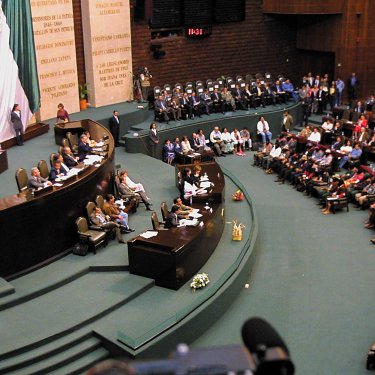Threat to Mexico’s mechanism for protecting journalists

Reporters Without Borders (RSF) is concerned about a threat to funding for the protection of journalists in Mexico, which continues to be one of the world’s deadliest countries for media personnel. This threat to future funding could put many journalists in danger.
As part of a series of big budget cuts to address major economic difficulties resulting from the Covid-19 pandemic and to focus on combatting the pandemic, Mexico’s government has decided to eliminate 109 “fideicomisos” – semi-independent state trust funds that financed non-profit activities ranging from independent cinema to sport.
Legislation to this effect was approved by the chamber of deputies on 8 October and by the senate 12 days later. The activities affected include the Federal Mechanism for the Protection of Journalists and Human Rights Defenders, which was created in 2012 and is attached to the interior ministry.
This decision – now irreversible after the vote in both parliamentary chambers – was taken despite countless warnings from civil society including RSF, which advised against it in a warning to the chamber of deputies on 8 June. There is now considerable concern about the Federal Mechanism’s future.
In a statement on 28 September, the Federal Mechanism’s management warned that elimination of its trust fund would result in a “loss of flexibility in the adoption [of urgent measures to protect journalists] and implementation of [other] urgent measures.”
In the past few days, many of the Federal Mechanism’s beneficiaries, including the families of journalists that sought refuge in Mexico City, have told RSF they are very anxious because they now face complete uncertainty about their future.
The elimination of the Federal Mechanism’s trust fund will inevitably make the process of requesting and obtaining protection harder and more complex and will lead to bureaucratic hurdles and red tape that could potentially put the safety and lives of applicants in danger. It could also result in less transparency about the use of the Federal Mechanism’s funding.
“President López Obrador and the interior ministry must quickly explain how the prerogatives of this ‘fideicomiso’ will be replaced and they must guarantee that the Mechanism’s resources will be maintained and managed in a completely transparent manner,” said Emmanuel Colombié, the head of RSF’s Latin America bureau.
“Mexico continues to be one of the world’s most dangerous countries for journalists. That this vote could undermine the Mechanism and endanger its beneficiaries is inconceivable. The Mexican authorities must lose no time in creating a new, transparent and effective system allowing calm and long-term implementation of the Mechanism’s mandate.”
The Mechanism currently has 1,304 beneficiaries, of whom 418 are journalists (111 women and 307 men) and 886 are human rights defenders (471 women and 415 men).
During a visit to Mexico in November 2019 by an international human rights coalition including RSF, Mexico’s under-secretary for human rights Alejandro Encinas undertook to progressively implement the 104 recommendations for improving the Mechanism that the Mexico City office of the UN High Commissioner for Human Rights made in July 2019.
They included the need for the state to guarantee and increase the Mechanism’s human and material resources to the level needed for it to function effectively. No concrete decision was ever taken after the undertaking was given.
At least 15 journalists have been murdered in direct connection with their work since President López Obrador took office on 1 December 2018. Five journalists have been murdered so far in 2020, making Mexico the world’s second deadliest country for journalists (after Iraq, where six journalists have been killed).
Mexico is ranked 143rd out of 180 countries in RSF's 2020 World Press Freedom Index.



